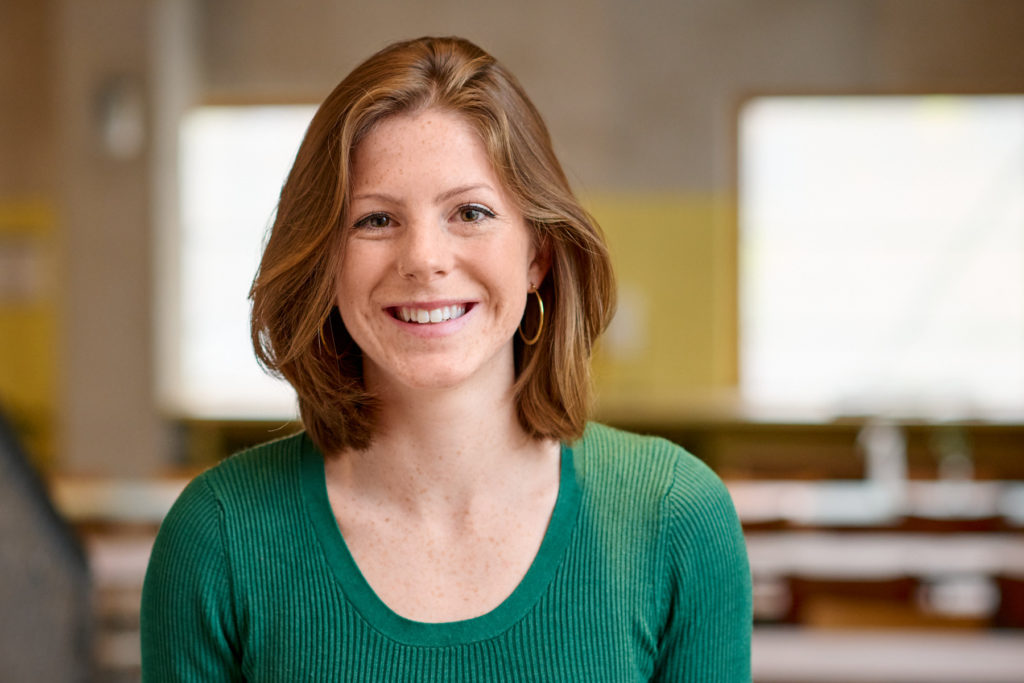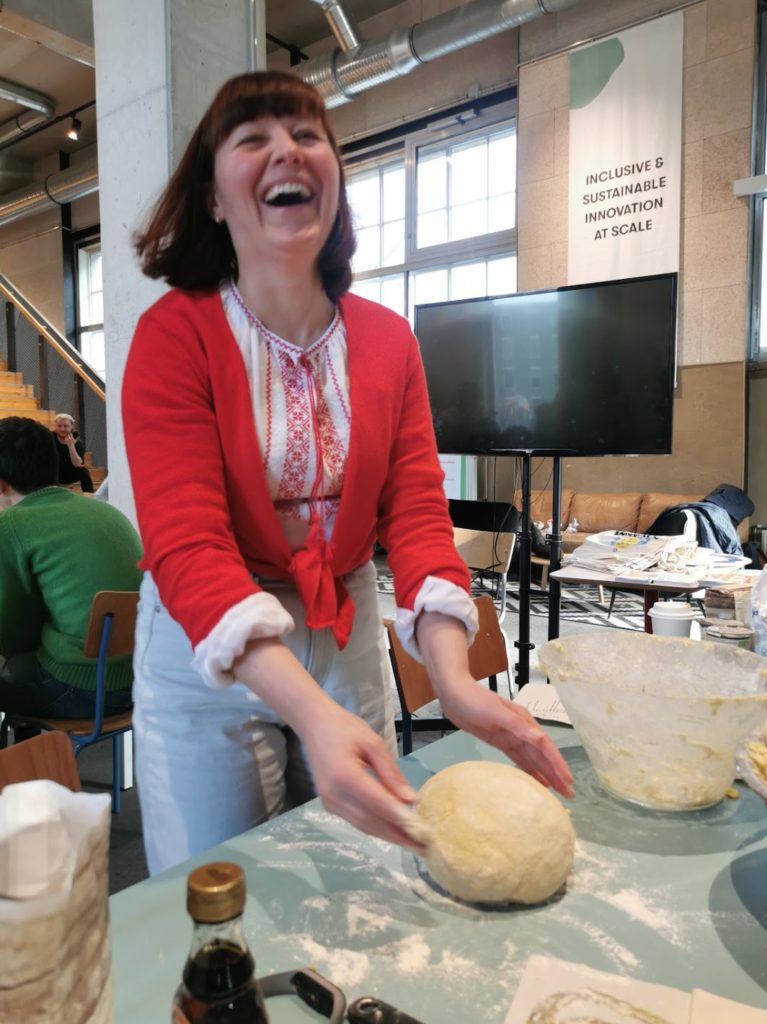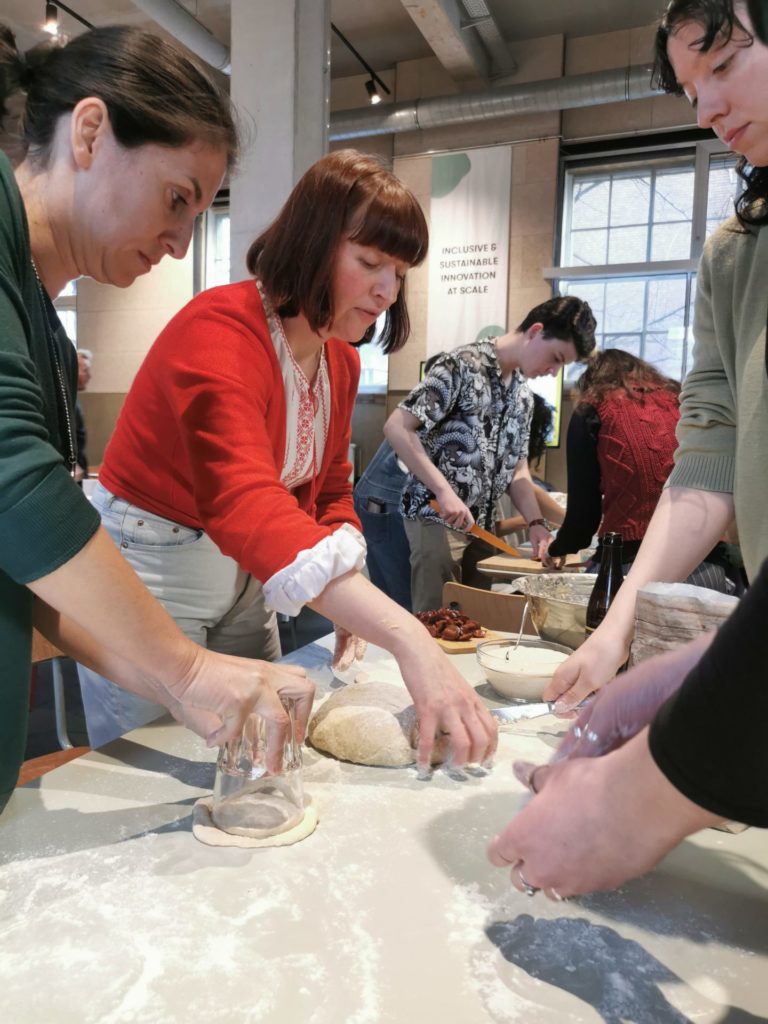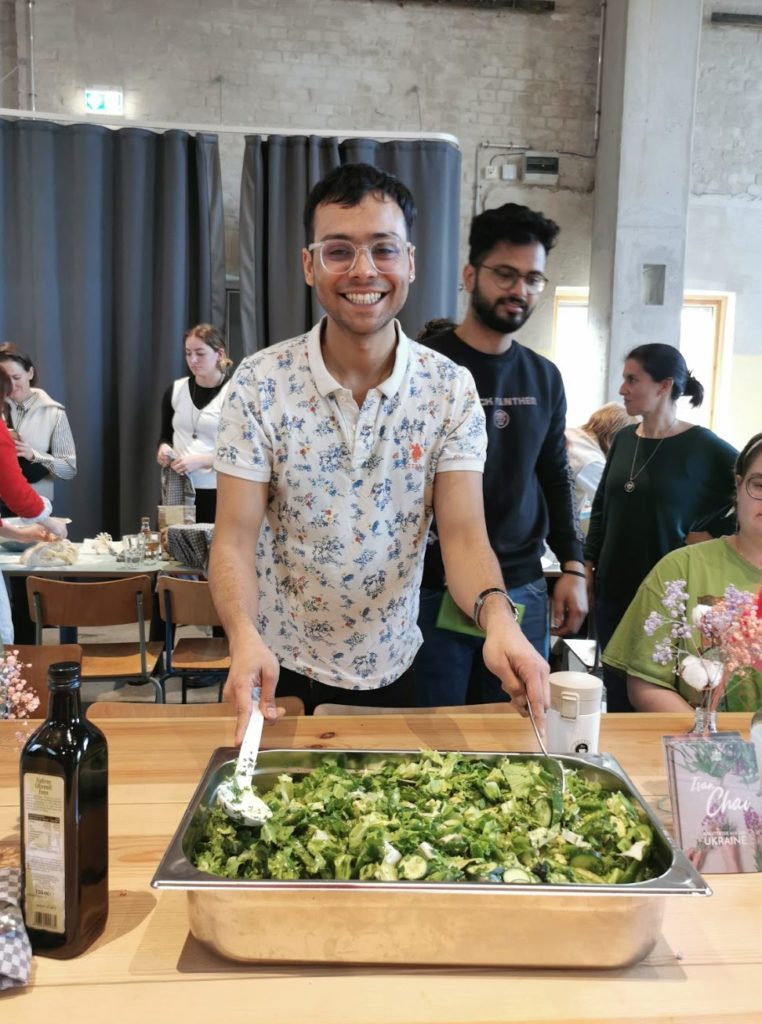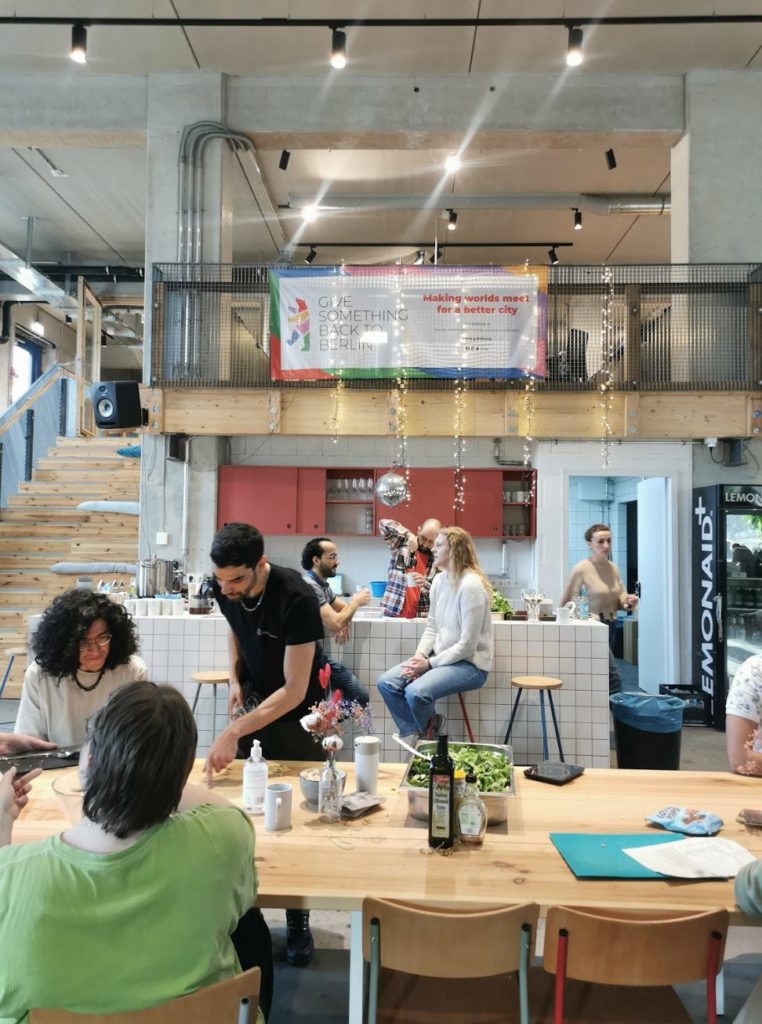Can sustainable food help strengthen diverse and inclusive communities?
It’s a cliché to say food brings us together. But it really does. Whether it’s close family and friends, long-lost relatives or new acquaintances, preparing a meal together and sitting down at the same table to enjoy it, brings us together in the most fundamental way. The table becomes a symbol for togetherness and sharing.
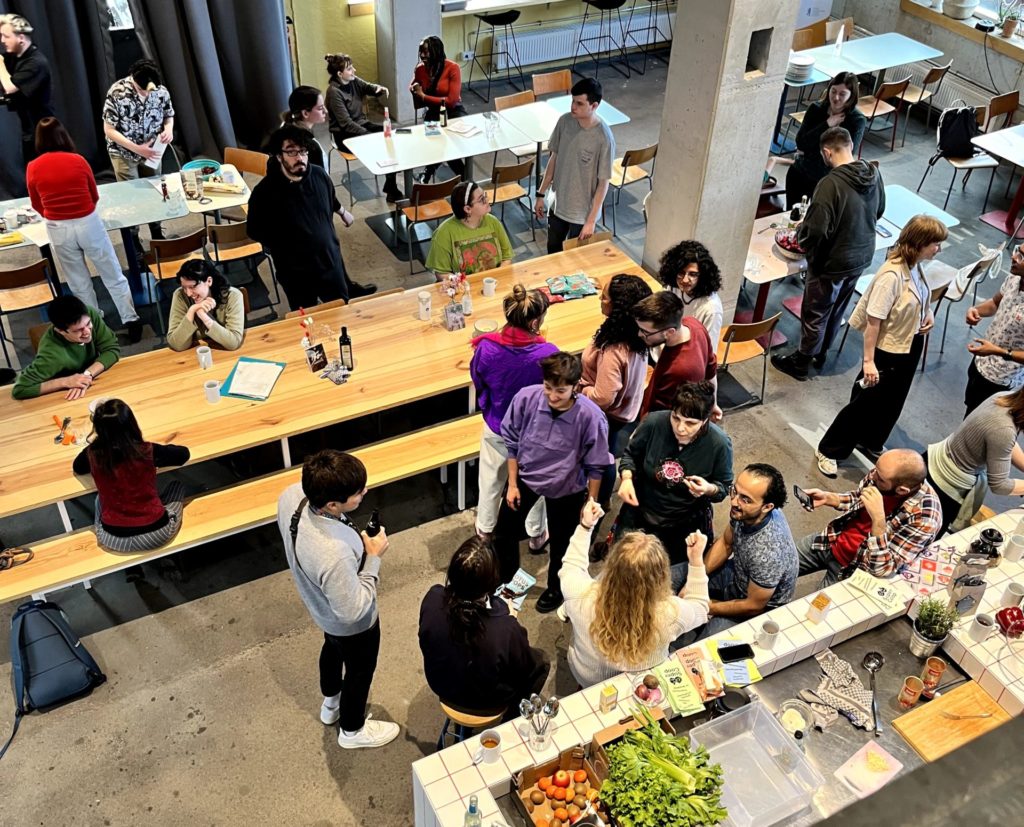
That’s true for the table at Impact Hub Berlin, too. It stands in the centre of our event and gastronomy space - connecting the two pillars which hold up the roof of our circular space. It is where our impact entrepreneurs and enablers connect with and inspire each other. It is where our weekly community lunch is enjoyed. And occasionally, it is where our Impact Hub team gets up to get down to some funky tunes and celebrate our successes and failures.
Space and design in gastronomy is also important to Billy Wagner, co-founder of Die Gemeinschaft and an East German refugee who arrived in West Berlin aged 7. Today, in his Michelin star restaurant in Berlin, Nobelhart & Schmutzig, the kitchen is in the centre of the room, while the guests are seated around the edge, served local food that tells the story of the region and connects people to the land. It is the food and the chefs that are the stars here.
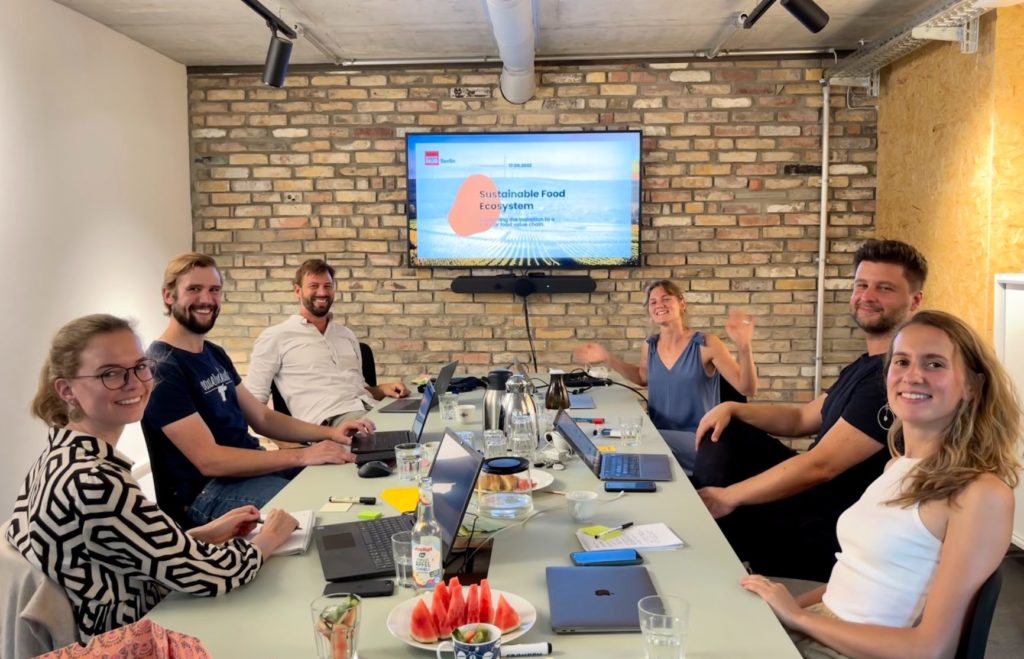
To create a circular and interconnected food system rather than following the linear food chain, authentic connections and networks are key. Die Gemeinschaft is a community of over 90 chefs, farmers and food producers and distributors along the food chain. The community exchanges experiences, skills and knowledge about sustainable food systems and promotes the concept of good food culture. They are Berlin’s pioneers leading the new farm revolution.
Our partners and fellow change drivers, Rentenbank, are also engaged in promoting sustainability, particularly in the field of agir-food. Through our ecosystem partnership and other programmes, Rentenbank is investing in sustainable food, supporting start-ups and impact drivers that tackle challenges of the current food system.
While change needs to happen at all levels, including at Michelin star restaurants and through cultural revolutions, food in itself is a much more fundamental resource. 1 in 10 people, globally, suffer from malnutrition and 1 in 4 face food insecurity. Vulnerabilities in the food system are obviously a huge health issue, but they are also a social one. Access to safe, healthy and sustainable food is strongly linked to social cohesion. People can experience shared or distinct social identities through food and food can help cultivate a sense of belonging and community.
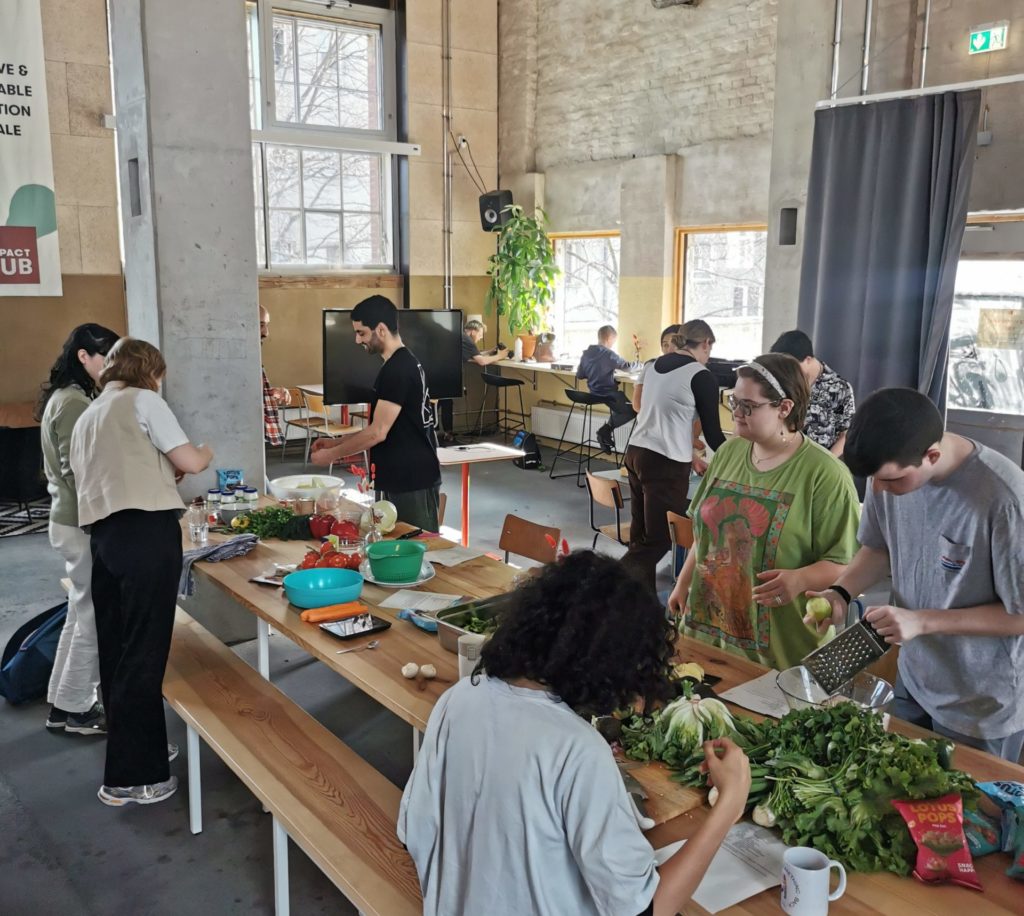
Cultivating a sense of belonging through food is the principle upon which Open Kitchen is based. Open Kitchen is a Give Something Back to Berlin initiative which aims to use food to bridge social and cultural differences and bring communities together. Every week, the organisers welcome local Berliners, new arrivals, refugees and locals to connect, make friends and share recipes through cooking.
At the beginning of April, we were honoured to host Open Kitchen in our circular coworking, offices and event space in the CRCLR House to connect, inspire and enable our communities. It was also important for us, as Impact Hub Berlin, to recognise over one year since the invasion of Ukraine and the ongoing suffering of people from Ukraine and all over the world, who are forcibly displaced.
Despite the heaviness of the situation, Anna, our guiding chef and Ukrainian refugee, filled the space with her bright smile, openness and the smells of her home. Before we sat down to enjoy Anna’s delicious Borsch, we heard from Olga, co-founder of Bake for Ukraine.
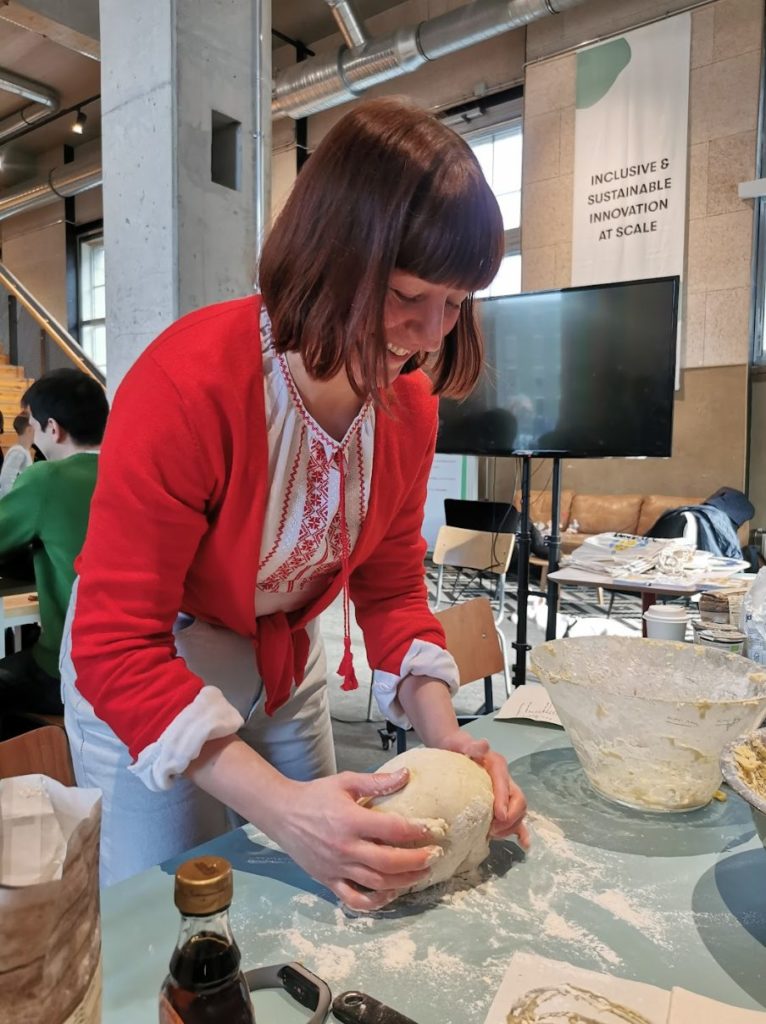
Olga’s story is both heavy and inspiring. From what started with a few loaves of Ukrainian bread, Olga and her co-founders have scaled up their impact and are now able to support bakers across Ukraine. Bake for Ukraine enables local bakers to feed communities as well as soldiers in Ukraine, and secure food crafts in the regions.
Next, they plan to set up a programme to support and retrain Ukrainian veterans as bakers. Their vision is that this is not only a professional journey but a healing one too.
This is not only Olga’s story. Two women from Ukraine who attended the Open Kitchen event, approached Olga after her presentation with tears in their eyes – the people Bake for Ukraine is feeding are their friends and family, too.
Hadi, founder of Reviving Home and a refugee from Syria, also joined the event. Olga and Hadi are both entrepreneurs. They are both working to support their communities in their home countries. They are both turning to food for the answer and as an impactful lever for positive change.
Hadi is setting up a new Zero Hunger initiative as part of Reviving Home. In Syria, 2.5 million people are severely food insecure. The initiative will enable people in Berlin to pay directly and transparently for meals for communities in Syria.
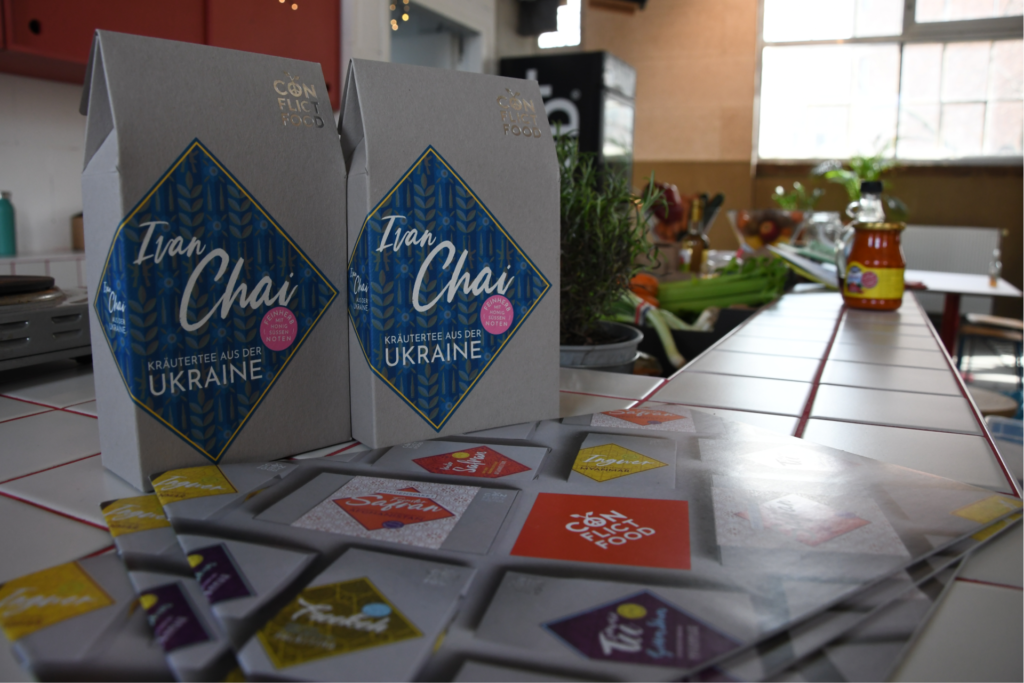
As well as creating a bridge between people and communities, we are also creating bridges between our ecosystems - avoiding systemic silos and enabling more collective action. At Open Kitchen, we were supported by a number of changemakers in our Sustainable Food ecosystem as well as our Diversity, Equity and Inclusion ecosystem.
Conflict Food - a member at Impact Hub Berlin - is an inspiring example of how impact startups often create impact across ecosystems or areas of impact. Conflictfood follows a holistic and socially sustainable approach along the entire value chain: from working in partnership with farmers in conflict regions to cultural exchange. They are committed to contributing to solving social and ecological conflicts.
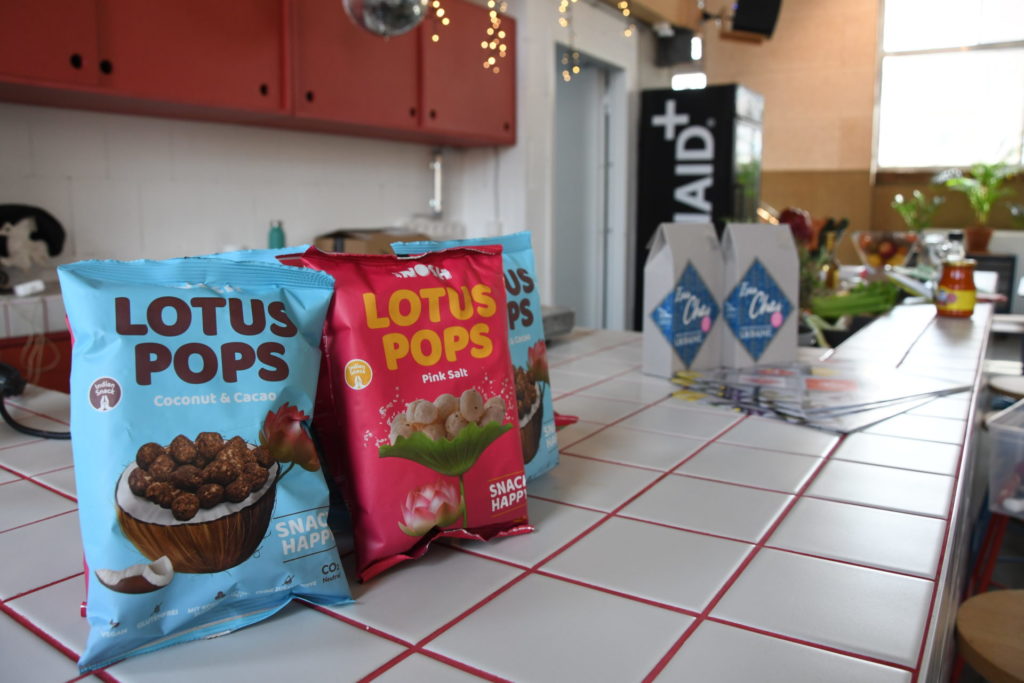
For Shweta, founder of Just Nosh, who kept our guests going with plant-based snacks while we cooked, her homesickness for food is what inspired her to become an entrepreneur. For her, food is at the heart of her memories of every gathering and celebration. After migrating to Germany, she wanted to bring a little piece of home with her.
"I missed the food from home and wanted to feel more connected to my country. Just Nosh allowed me to bring food with an Indian twist to Germany," says Shweta Pahuja.
Thank you also to our amazing community at Impact Hub Berlin – Jobs4Refugees, Kiron, People Beyond Borders, and Hudara, amongst many others – who showed up, cooked, helped us during the event and welcomed our guests with open arms.
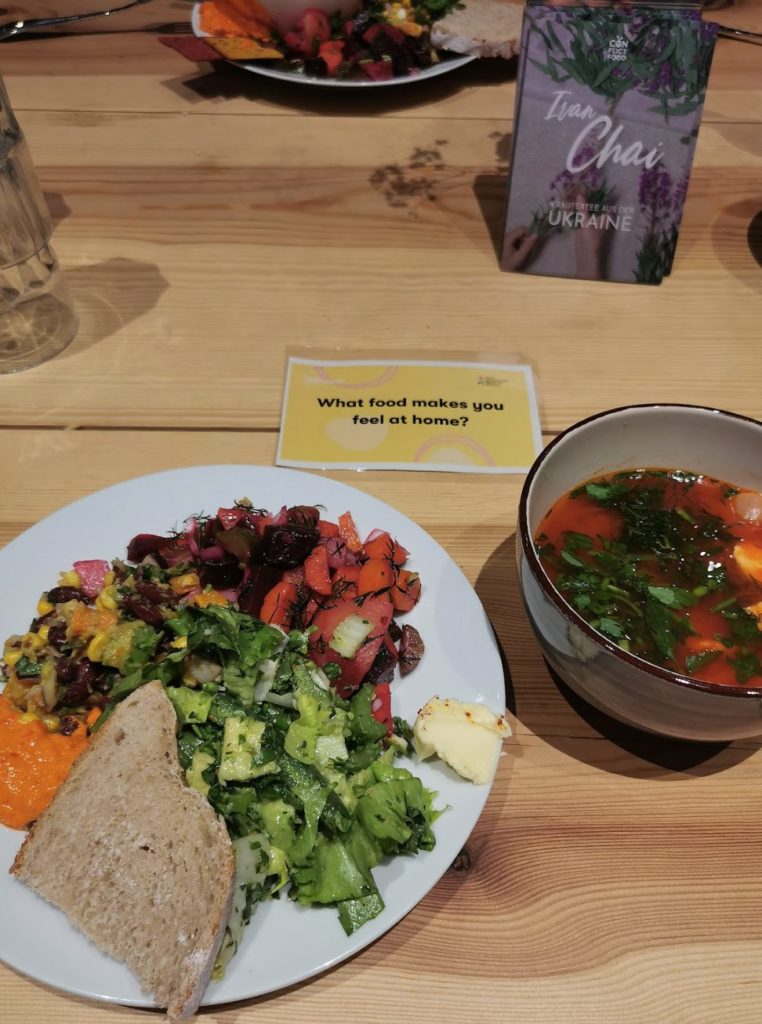
To return to the main question of this blog: Sustainably sourced food, from local startups, Supercoop and Querfeld certainly created an inclusive atmosphere in which connections were made between diverse people, and perhaps even a new community. Could the same result be achieved with unsustainable food? Of course it could. But the transformation of our social, economic and political structures needs to be done in an environmentally conscious as well as affordable way – in order to be sustainable. Vice versa, a truly sustainable food system must also be socially sustainable and accessible for all.
